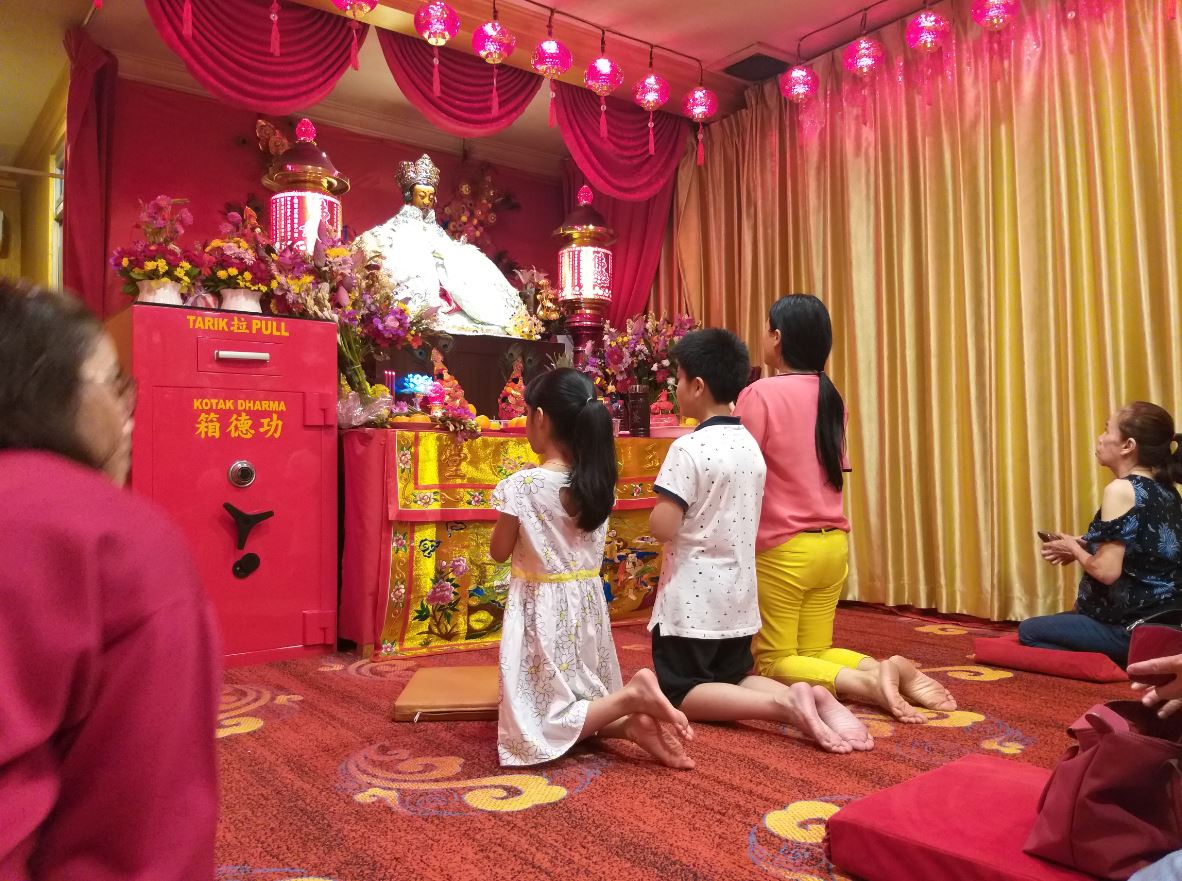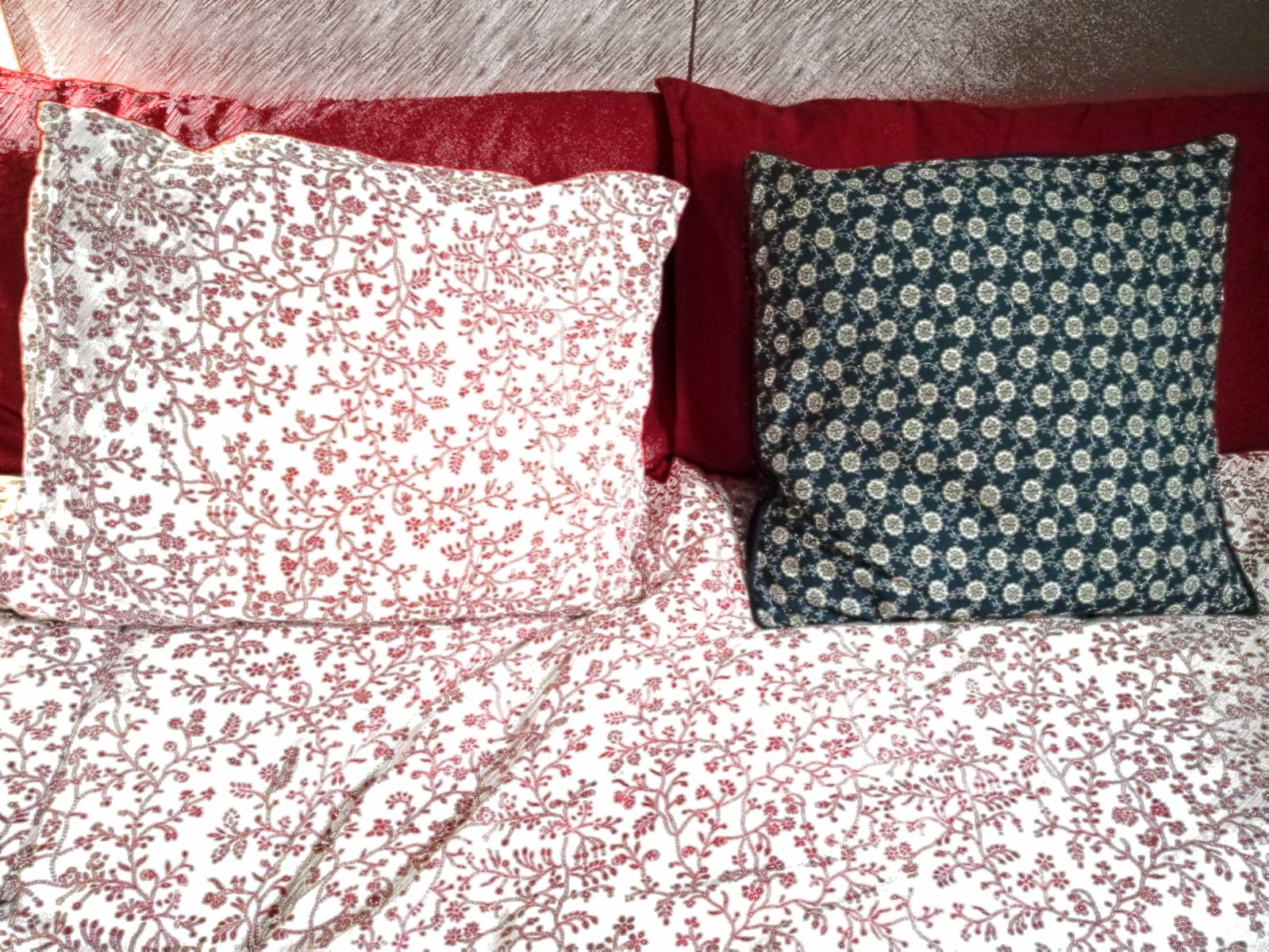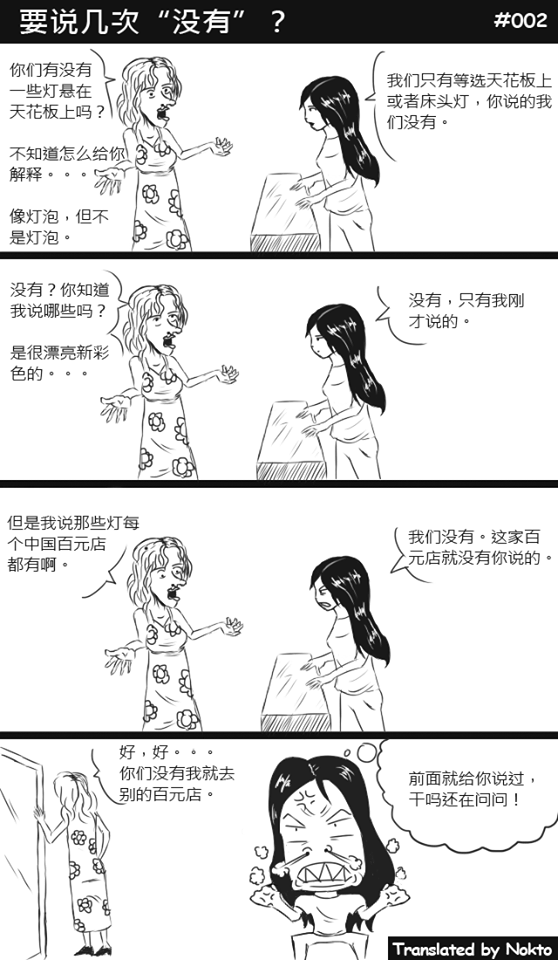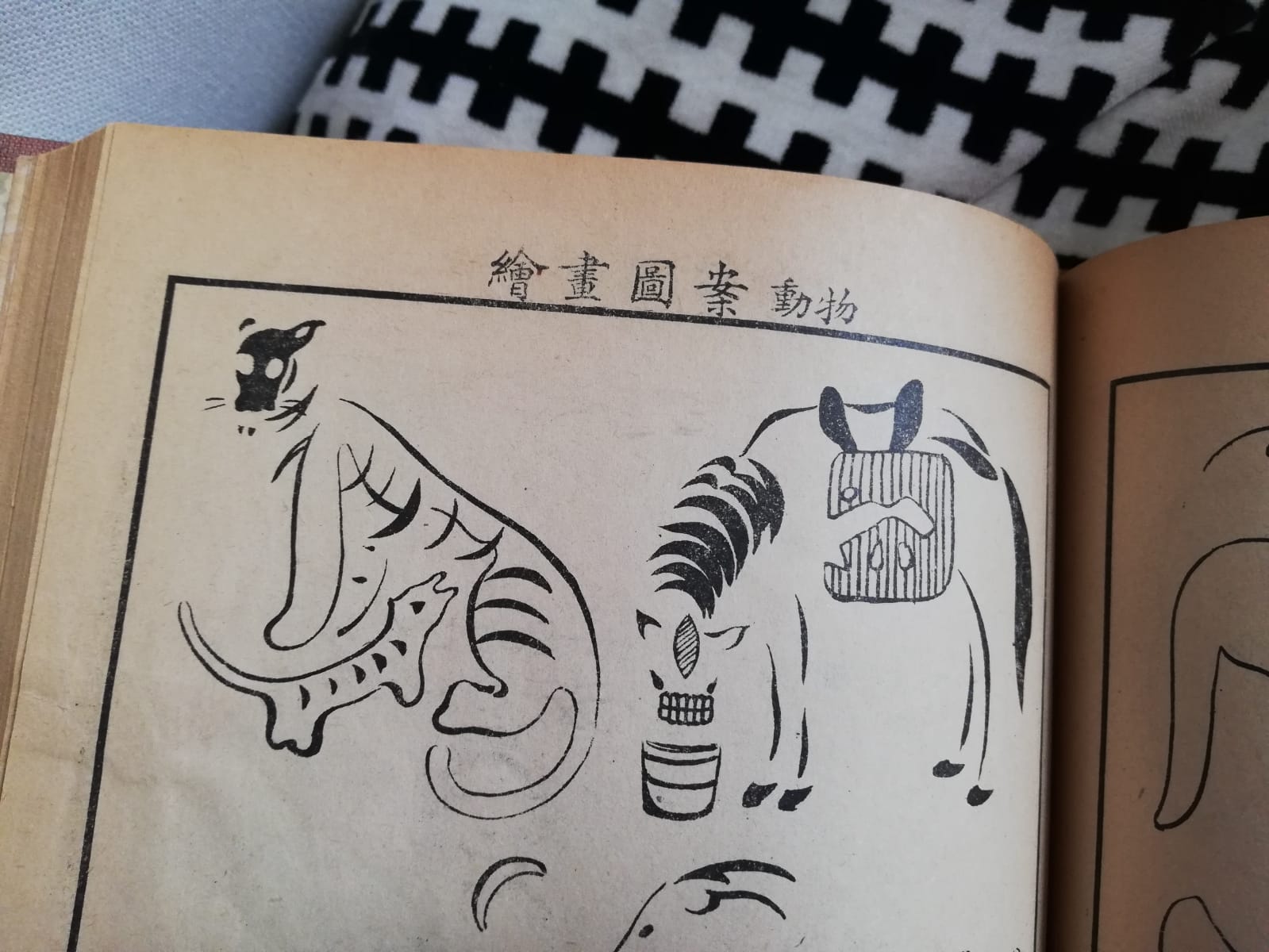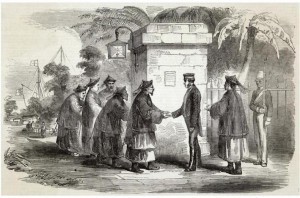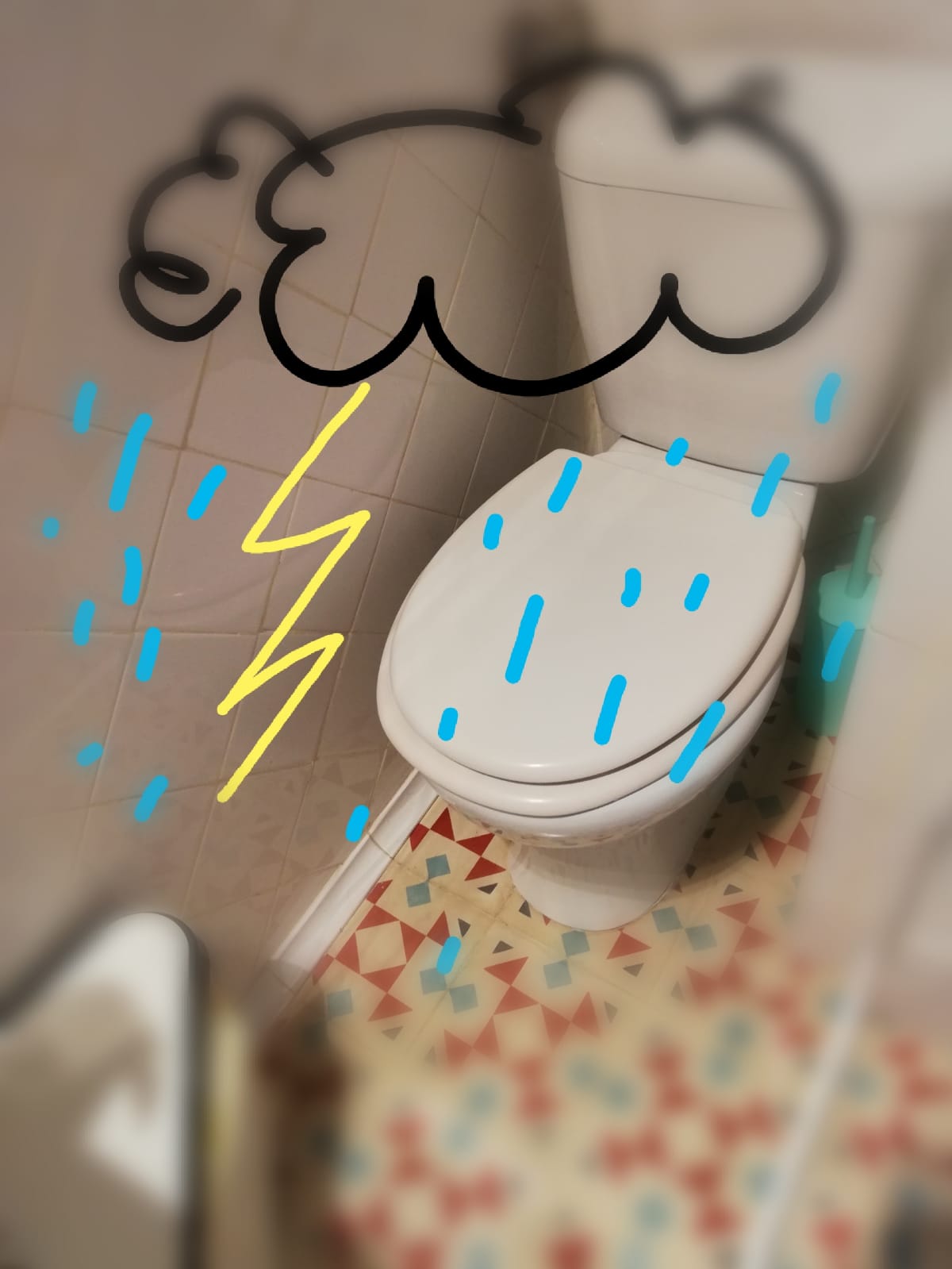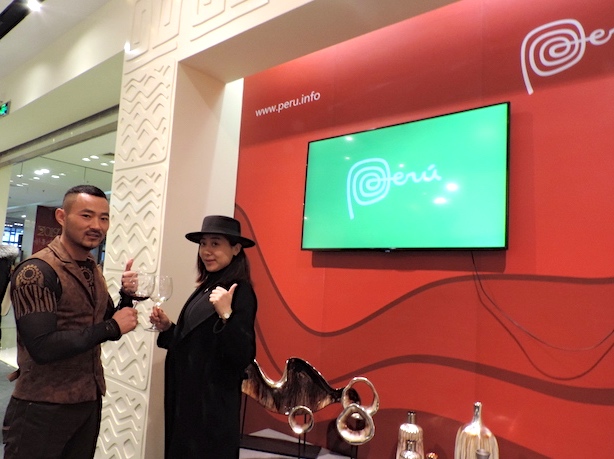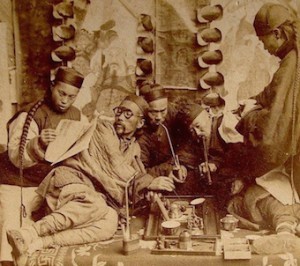I come here to ask some questions to Goddess Guan Yin. I’m currently restoring my life balance (Fang Na, 16th February 2019, a visitor in Jin De Yuan Temple) It has been a long time since I came here to pray (it’s probably around 2017, which...

Artículos
Cosas que me explica mi madre: Xiùhuā zhěntóu
繡花枕頭 绣花枕头 [audio m4a="http://www.tusanaje.org/wp-content/uploads/2019/02/bordar.m4a"][/audio] «Bordar flores en la almohada», en chino xiùhuā zhěntóu, es hacer algo inútil, que no sirve para nada, me explica mi madre. —¿Por qué? —pregunto. —Porque solo las ves un momento, antes de dormir. Debe de existir un refrán parecido en español, ¿no? «Echar margaritas a los...
Crónicas €urorientales Muchas veces la gente entra a la tienda y pregunta por algo que quiere. Es verdad que en los bazares se pueden encontrar muchos artículos, pero a veces no hay lo que buscan...
Cosas que me explica mi madre: Mămahūhu
馬馬虎虎 马马虎虎 [audio m4a="http://www.tusanaje.org/wp-content/uploads/2019/02/mamahuhu.m4a"][/audio] En chino, mămahūhu, más o menos significa ‘más o menos’. ‘Déjalo así, qué más da’. ‘Chapucero (pero suficiente)’. Literalmente, mă significa ‘caballo’, y hŭ, ‘tigre’. —Pues no lo entiendo, mamá. —Se parecen —dice mi madre. —¿¿Un caballo y un tigre?? —Bueno, los dos tienen cuatro patas,...
Neruska Rojas Historiadora e investigadora nerurojas87@hotmail.com A lo largo del siglo XX, la industria hollywoodense y la cultura dominante (mainstream) no solo ha perpetuado estereotipos ofensivos sobre la comunidad asiática en el cine, el teatro y la televisión, sino que también ha sido el principal promotor del whitewashing,...
(Originally published in the blog of My China Roots). [English] From 1757 until 1842, Guangzhou, or Canton as it was called back then, was China’s only official door to the outside world. With the aim to control China’s foreign trade, the ‘Canton System’ meant that all imports...
Cosas que me explica mi madre: Qiăng mătŏng huì xiàyŭ
搶馬桶會下雨 抢马桶会下雨 [audio m4a="http://www.tusanaje.org/wp-content/uploads/2019/02/retrete-y-lluvia.m4a"][/audio] —En chino, qiăng mătŏng huì xiàyŭ significa: ‘si te peleas por el retrete puede que llueva’—dice mi madre. Me río, imaginando a dos personas desabrochándose el pantalón o subiéndose la falda y pugnando por sentarse en el retrete y, de pronto, un trueno lejano. —¿Por qué? —pregunto...
This article as a study covers the issue of a person’s religious affiliation as a way of establishing a position in society, by which is described the historical developing of the Chinese immigrants as a commune in Peru. Isabelle Lausent-Garcia describes and explains the appearance...
(Este artículo fue publicada originalmente el 01.19.2019 en el Blog Vía China de El Comercio) De las 56 mujeres multimillonarias en el mundo que se hicieron a sí mismas (no heredaron la empresa del papá), 21 son chinas, según reportó Forbes en el 2017. Si las...
(Originally published in the blog of My China Roots). [English] Who would have thought that the preservation of the ever so civilized ‘tea time’ would drive the British to instigate nationwide drug addiction and a ‘century of humiliation’ in China? By the 18th century, Britain was drinking so...

